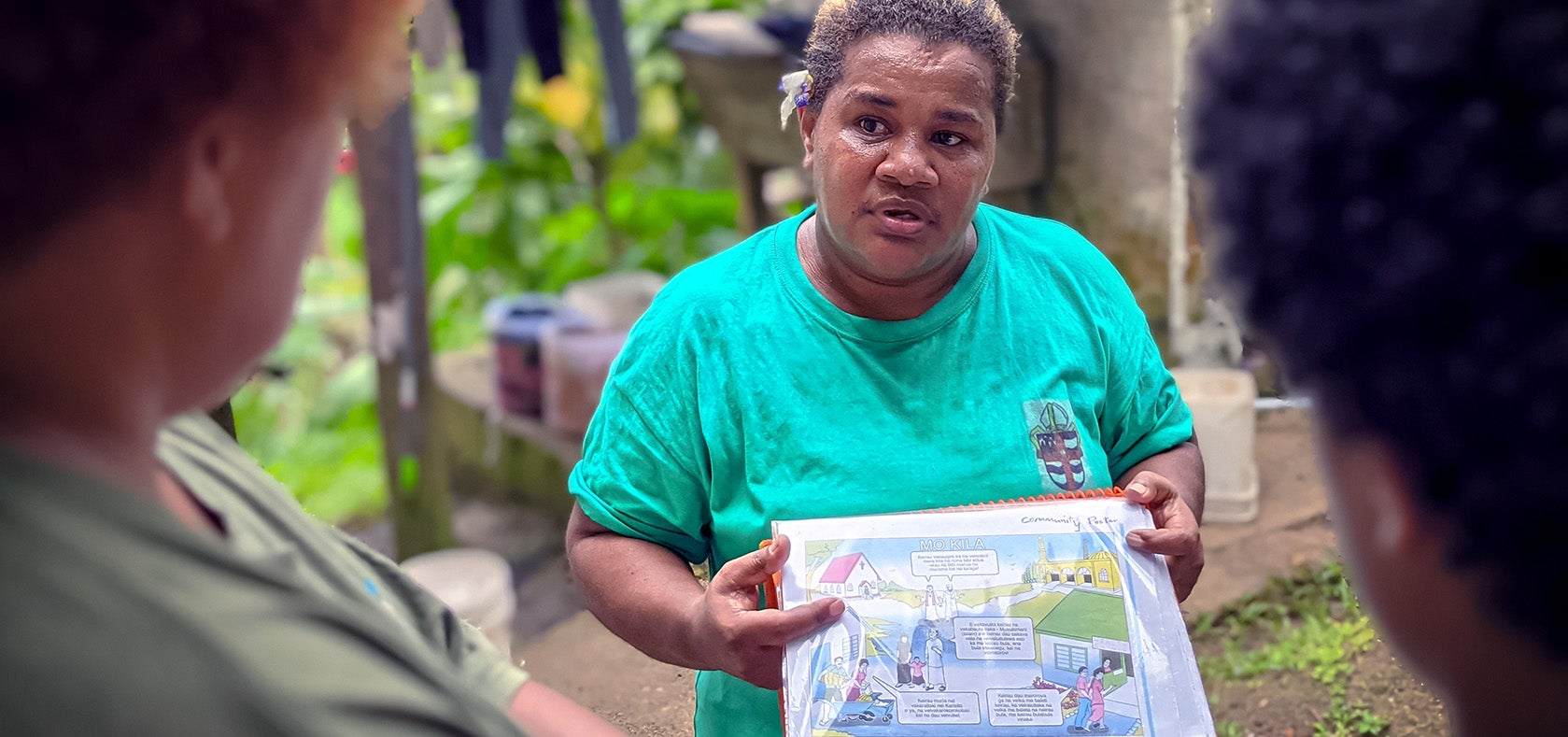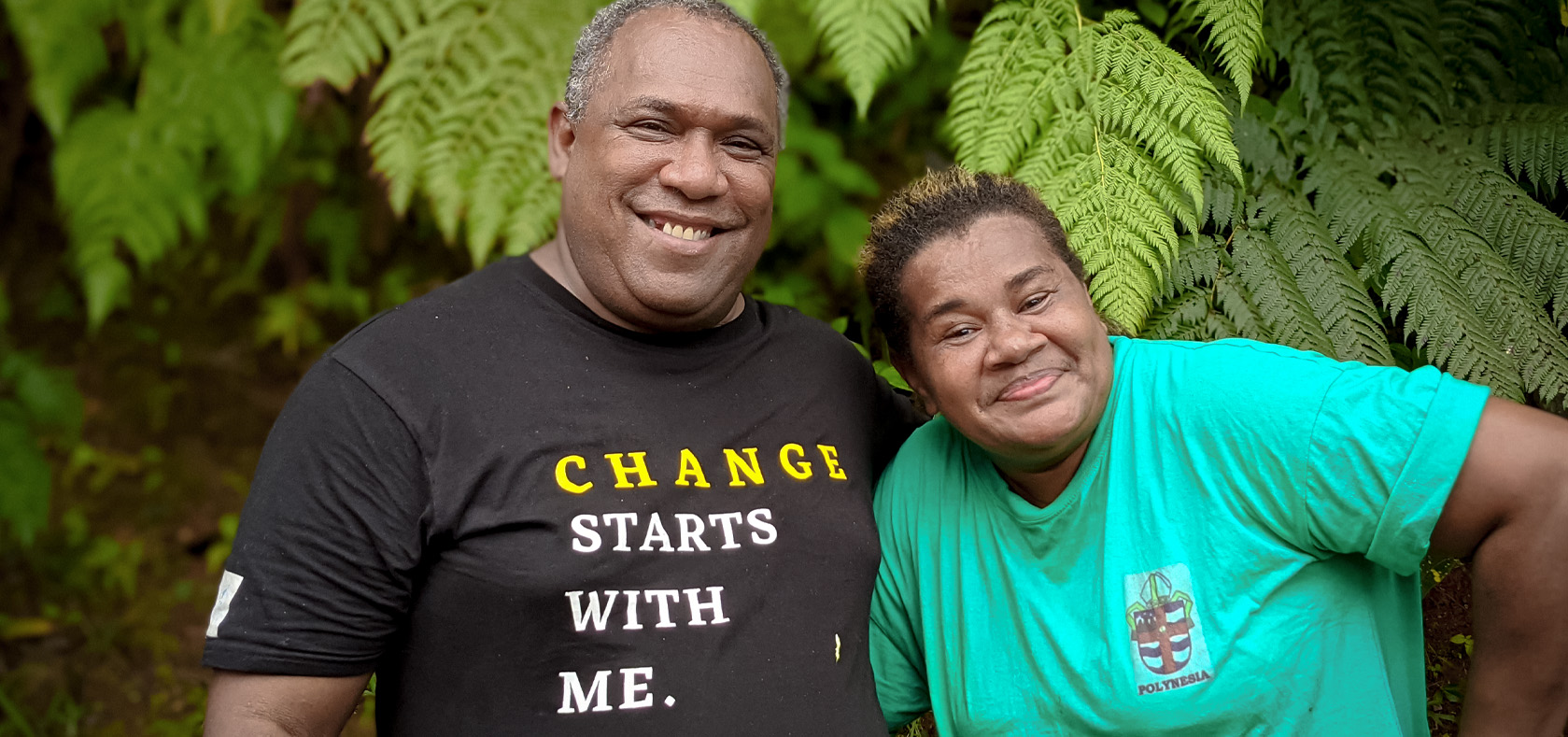In the words of Alisi Dari: “I needed to change myself first before I could change the community”
Members of three Christian communities in Fiji are strengthening their leadership to create a community that rejects violence against women using faith-based approaches, to prevent it from happening. Alisi Dari is a community activist who passes the teachings she has learned on to other members of her community.Date:


I knock on people’s doors. If they want me to come in, I go in. We introduce ourselves, and we pray. If they don’t want me to go in, I invite them to meet me in churches or community halls. It can be hard to get men to come. It can be hard to have men and women together because men blame women for causing violence. We community activists, use the [adapted Raising Voices’ SASA! Faith] tool to have discussions. One of the tools is the Power Poster which contains a number of pictures, then together we select a picture to discuss. I then ask them, “What do you see happening here? How are they using the power? How do you use your power with others? What does the Bible say?” Violence against women and children is against Christianity. With violence, there is no peace inside the family, community, even inside the church. First, we learn that everyone has power, but some use it in a good way and others use it to hurt others.
In my community, there are descendants of Solomon Islands, Vanuatu, and other Pacific Islands. It was hard for me to mingle in the community because we didn’t know each other. It was hard for me to get to know people. On weekends, there were drunken boys and men in the village who grabbed women. My husband used to swear at me when he was drunk. I ran away many times, even with my children. I used to think violence against women and children was normal. In 2019, my sister-in-law invited me to one workshop held by [local faith-based organisation] House of Sarah. There, she encouraged me to become a community activist so I could discuss the issue of violence with my husband. I joined her.
The project helped me change my mindset. I learned that I needed to change myself before I could change the community. I tried to get to know people in my community. I knocked on people’s doors. I sat down with boys standing on the side of the road. My husband saw me doing these things. He must have thought, “What would the community people say if she goes and discusses power and violence when her husband hadn't changed?” Then he said he’d better change first. It may be peer pressure, but that helped. When we go around in the community, they see my husband and say ”Uh-oh, a man in a skirt!.” He responds, ”Just come and sit down. Let’s discuss. It will help you to know what is going on.”
Read Alisi’s husband, Tomu Dari’s story here
Alisi Dari (right) is making a positive influence in her community and at home. She poses with her husband, Tomu (left) who followed her footsteps to become a Community Activist with the House of Sarah in Newtown, Suva. Photo: UN Women/Miho Watanabe
Since 2018, faith-based non-governmental organisation House of Sarah has been piloting the Preventing Violence Against Women in Fiji’s Faith Settings initiative in three Christian communities in Fiji. House of Sarah is co-funded by the Pacific Partnership to End Violence Against Women and Girls (Pacific Partnership), which is funded primarily by the European Union, the Governments of Australia and New Zealand, UN Women, and the Fiji Women’s Fund (also supported by the Australian Government). House of Sarah has been working to respond to violence against women and children in Fiji since 2009, and began its prevention work in 2017.
Through strategic partnerships with faith leaders, and those in the education, sport and employment sectors, UN Women has been working to prevent violence against women and girls in Fiji.
Interview transcript edited for clarity.
Interviewed by Miho Watanabe
Contributors: Lisa Smyth, Reverend Sereima Lomaloma and Alisi Qaiqaica (House of Sarah), Shazia Usman and Shabina Khan (UN Women), Michelle Reddy (Fiji Women’s Fund)
